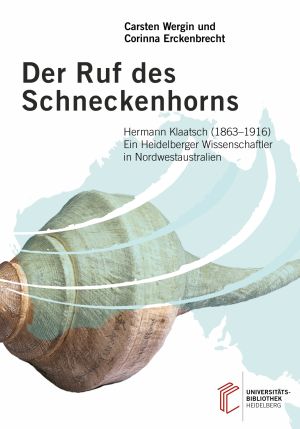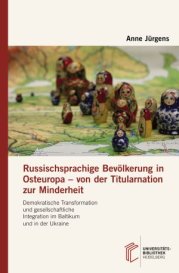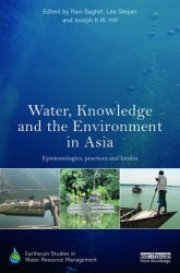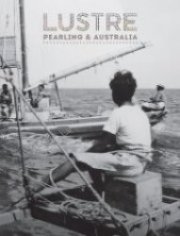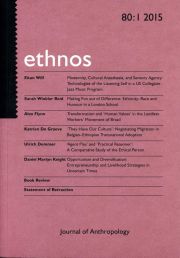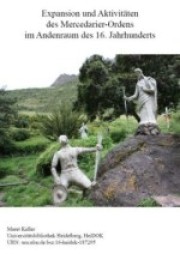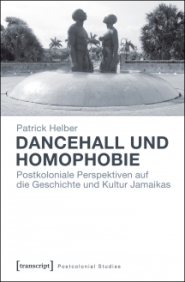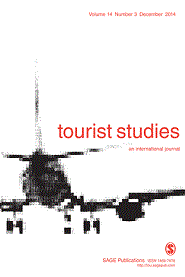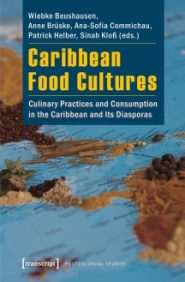Narratives of the Body: Coming-of-Age in Contemporary Caribbean Women's Writing in the Diaspora
The bildungsroman with a focus usually on one single character and her coming into being is particularly well suited to investigate how migration, cultural entanglements and growing up in at least two different locations, namely the Caribbean and North America, impact on the individual and alter subject formation. The project investigates the Caribbean-diasporic coming-of-age novels written by Makeda Silvera (*1955), Ramabai Espinet (*1948), both resident in Canada, Edwidge Danticat (*1969), and Angie Cruz (*1972), resident in the United States. It analyses migration and socialization patterns, body politics and embodiment. Aim of this study is to offer a pan-Caribbean selection of texts and distinct diasporic location in North America; to define generic features of the Caribbean-diasporic coming-of-age novel; to juxtapose and apply lived body and lived experience as analytical tool.
I employ diaspora theories to frame the selected texts and diverse topics discussed within the novels. The concepts of migratory subjectivities, the Black Atlantic and the Kala Pani account for both the Indo- and Afro-Caribbean experience of multiple dislocations, uprooting and rerouting. Here, I would like to speak of a feminist diasporic poetics which focuses on the body and the intersections of gender, class, race, age and sexualities.
Since adolescence is inevitably connected to physiological change and sexual awakening, both the woman’s body and sexuality are made visible and highly significant in the narratives. Agreeing that there is a materiality of the body, I also argue that bodies are socially constructed, gender, sexuality and race thus made meaningful and vary according to specific contexts. I insist on the agency, performative, and discursive power of the body – a textual script testifying lived experience. I draw from various approaches of Black, Latina and Indo-Caribbean feminism and argue that the characters in the novels challenge normative views on the body.
Zur Person
Wiebke Beushausen
Universität Heidelberg
Transcultural Studies
Marstallstraße 6
69117 Heidelberg
Tel. (0049) 6221 54-7858
Fax: (0049) 6221/54-7862
beushausen[at]uni-heidelberg.de
Lebenslauf
Seit September 2015
Assoziiertes Mitglied der Transcultural Studies-Nachwuchsgruppe „Karibik-Nordamerika und zurück“ an der Ruprecht-Karls-Universität Heidelberg
August 2014 - Juni 2015
Referentin im Gleichstellungsbüro, Georg-August-Universität Göttingen
Februar 2012 - März 2012
Gastwissenschaftlerin am Centre for Research on Latin America and the Caribbean, York University, Toronto
Februar 2012
Promotionsstipendium zur Förderung des Forschungsaufenthalts durch die Stiftung für Kanada-Studien
Seit Dezember 2010 - Dezember 2013
Wissenschaftliche Mitarbeiterin in der Transcultural Studies-Nachwuchsgruppe „Karibik-Nordamerika und zurück“ an der Ruprecht-Karls-Universität Heidelberg
April 2010 - November 2010
Projektmitarbeiterin „Integrating Women’s and Gender Studies“ am Institut für Anglistik der Universität Gießen
Mai 2009 - März 2010
Wissenschaftliche Hilfskraft am Institut für Anglistik der Universität Gießen
April 2009
Diplom, Universität Gießen, Diplomarbeit: Intertextualität und Sexualität: Die Neuperspektivierung des Körpers und der Geschlechterbeziehungen in postkolonialen Rewritings
Januar 2008 - März 2009
Studentische Hilfskraft der Geschäftsleitung des SFB 434 „Erinnerungskulturen“
September 2006 - April 2009
Studentische Hilfskraft am Institut für Anglistik der Universität Gießen
September 2004 - Juni 2005
Studium an der Management School, University of Bradford/ West Yorkshire (ausgezeichnet mit dem „Certificate of Continuing Education“)
ab Oktober 2002
Diplomstudium „Angewandte Fremdsprachen und Wirtschaft“ an der Universität Gießen in den Fächern: Anglistik, Hispanistik, Betriebswirtschaftslehre
Juni 2002
Abitur, Gymnasiale Oberstufe Wetzlar
Veröffentlichungen
Herausgeberschaften
Caribbean Food Cultures: Culinary Practices and Consumption in the Caribbean and Its Diasporas. Bielefeld: transcript 2014. [mit Anne Brüske, Ana-Sofia Commichau, Patrick Helber, Sinah Kloß]
in Vorbereitung
Practices of Resistance: Narratives, Politics, and Aesthetics across the Caribbean. Series InterAmerican Research: Contact, Communicaton, Conflict. Routledge. [co-edited Miriam Brandel, Marius Littschwager, Joseph Farquharson, Annika McPherson, Julia Roth]
Artikel in Sammelbänden
„Writing from lòt bò dlo: Vodou Aesthetics and Poetics in Edwidge Danticat and Myriam Chancy“. Celucien L. Joseph / Asselin Charles / Schallum Pierre / Nixon S. Cleophat (Hgg.): Vodou in Haitian Memory: The Idea and Representation of Vodou in Haitian Imagination, Lanham: Lexington Books 2016. 145-178. [mit Anne Brüske; peer reviewed]
„The Caribbean (on the) Dining Table: Contextualizing Culinary Cultures“. Wiebke Beushausen / Anne Brüske / Ana-Sofia Commichau / Patrick Helber / Sinah Kloß (Hgg.): Caribbean Food Cultures. Culinary Practices and Consumption in the Caribbean and Its Diasporas, Bielefeld: Transcript 2014. 11-24. [mit Anne Brüske, Ana-Sofia Commichau, Patrick Helber, Sinah Kloß]
in Vorbereitung
„From Theory to Practice and Back: Caribbean Activism in and across Social, Cultural, and Political Contexts“. Wiebke Beushausen et al. (Hgg.): Resistance across the Caribbean: Practices, Narratives, Activism. Routledge [mit Julia Roth]
Aufsätze in wissenschaftlichen Zeitschriften
„‚Making Eden a Reality‘: Caribbean Ecopoetics and Ethnic Environment in Andrea Gunraj’s The Sudden Disappearance of Seetha“. fiar Vol. 8.3 (Dez. 2015): 91-110. [peer reviewed]
„Sexual Citizenship and Vulnerable Bodies in Makeda Silvera’s The Heart Does Not Bend and Joan Riley’s The Unbelonging“. Meridians: Feminism, Race, Transnationalism Vol. 13.2 (2016): 56-78. [peer reviewed]
im Druck
„Caribbean Canadian Feminism and Decolonial Practice in Makeda Silvera’s The Heart Does Not Bend and Her Head A Village“. e-journal EnterText, special issue “Crossing Thresholds: Decoloniality and Gender in Caribbean Knowledge [peer reviewed]
Rezensionen
in Vorbereitung
Julia Borst. Gewalt und Trauma im haitianischen Gegenwartsroman: die Post-Duvalier-Ära in der Literatur. Ersch. bei Narr, 2015.
Lehre/Teaching
“ ‘No where no betta dan yard?’ Jamaica’s 50th Anniversary of Independence”, Proseminar Kulturwissenschaften, Institut für Anglistik, Universität Heidelberg, WS 2012/13 [zusammen mit Patrick Helber]
Veranstaltungen
Januar 2015
Organisation der Junior Research Konferenz der Society for Caribean Research (Socare) „Cultures of Resistance: Theories and Practices of Transgression in the Caribbean and its Diaporas”. Universität Bielefeld
Januar 2013
Organisation des öffentlichen Workshops “ ‘No where no betta dan yard?’ Negotiating Jamaican Identities and Sexualities between Jamaica and the Diaspora”
Campbell X (London) und Dr. Rochelle Rowe (Berlin)
http://www.uni-heidelberg.de/md/transculturality/poster_nowherenobetta.pdf
September 2012
Organisation der internationalen Konferenz “Caribbean Food Cultures: Representations and Performances of Eating, Drinking and Consumption in the Caribbean and Its Diasporas”, Internationales Wissenschaftsforum Heidelberg
http://www.uni-heidelberg.de/md/transculturality/food_cultures_programme.pdf
Vorträge
2014
"Ecopoetics and Ethnic Environments: Reconstructing the "Interior" in Andrea Gunraj' The Sudden Disappearance of Seetha" Annual Conference of the Caribbean Studies Association (CSA) "'Mixing without Combining'?: Re/thinking Pluralist “Environments” in the Caribbean and its Diasporas", Mérida, Mexiko. 26.-30.05.2014
2013
"‘Marketing the Margins’: The Indo-Caribbean literary voice in the diaspora” Workshop mit Autor Ruel Johnson "Transnational Entanglements? The Locations of Guyanese Literature", Transcultural Studies, Heidelberg (org. Sinah Kloß). 17.12.2013.
“Embodiment and Coming of Age in Caribbean Diasporic Women’s Writing” Forschungskolloquium Prof. Dr. Frank Schulze-Engler, Dept. of New Anglophone Literatures and Cultures, Frankfurt. 17.01.2013
“‘Yuh uncle is a battyman’: Sexualities and Queer Bodies in Makeda Silvera’s The Heart Does Not Bend and Selected Short Stories” Workshop “Crossing Thresholds: Decoloniality and Gender in Caribbean Knowledge” Society for Caribbean Research (SoCaRe), Hannover. 23.-25.01 2013
“Kala Pani Continuum: Paradigms of Development in Ramabai Espinet’s The Swinging Bridge / Paradigmas del desarrollo en la novela The Swinging Bridge de Ramabai Espinet” Jahreskonferenz der Caribbean Studies Association (CSA) “Caribbean Spaces and Institutions: Contesting Paradigms of ‘Development’ in the 21st Century”, Grenada. 03.-07.06.2013
2012
“Narrating (Un-)Belonging and Citizenship in Caribbean Coming-of-Age Novels: Joan Riley The Unbelonging and Makeda Silvera’s The Heart Does Not Bend” Jahreskonferenz der Caribbean Studies Association (CSA) “Unpacking Caribbean Citizenship(s): Rights Participation and Belonging”, Guadeloupe. 28.05.-03.06.2012
2011
„Narratives of the Body: Coming-of-Age in Contemporary Caribbean Women’s Writing in the Diaspora“ Jahreskonferenz der Gesellschaft für Neuere Englische Literaturen (GNEL/ASNEL), Universität Hannover. 02.-04.06.2011
„Embodying Emotions in Speculative Fiction: Nalo Hopkinson’s Brown Girl in the Ring“ Nachwuchsworkshop „Performing Emotions in the Caribbean“ der Gesellschaft für Karibikforschung (SoCaRe), Berlin. 24.-25.06.2011
„Narratives of the Body: Coming-of-Age in Contemporary Caribbean Women’s Writing in the Diaspora“PhD Colloquium des Heidelberg Center for American Studies (HCA). 01.-02.07.2011
2010
„Maryse Condé and Rewriting History“ Seminar „Representations of the Salem Witchcraft Trials, 1692 till Today”, Leitung: Dr. Birte Christ, Universität Gießen. 31.05.2010



